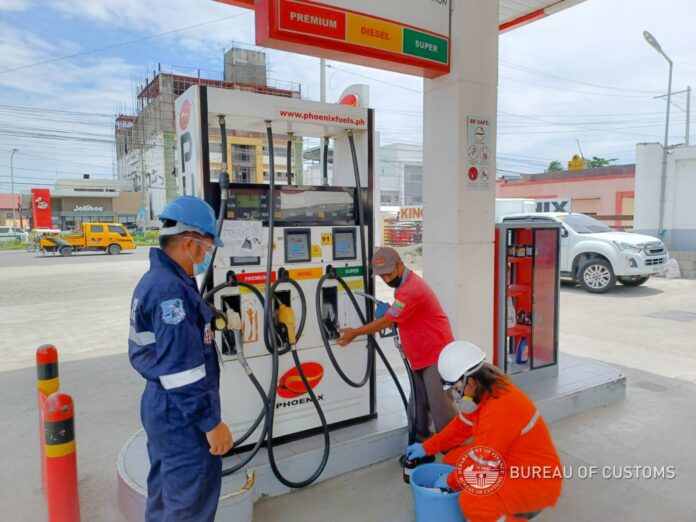
-
Government collected P367.3 billion in import duties and taxes from 36.68 billion liters of fuel marked as of February 11, 2022
-
Of the total, the Bureau of Customs collected P337.44 billion in import duties while the Bureau of Internal Revenue generated P29.81 billion in excise taxes
-
Diesel accounted for 22.26 billion liters of the total volume marked, and gasoline and kerosene 14.23 billion liters and 193.11 million liters, respectively
-
Petron contributed the largest share of marked fuel at 8.92 billion liters
The government collected P367.3 billion in import duties and taxes from a total of 36.68 billion liters of fuel marked as of February 11, 2022, according to the Department of Finance.
Of the total, the Bureau of Customs collected P337.44 billion in import duties while the Bureau of Internal Revenue generated P29.81 billion in excise taxes since the start of the fuel marking program in September 2019.
Diesel accounted for 22.26 billion liters of the total volume from September 2019 to February 11, 2022, and gasoline and kerosene 14.23 billion liters and 193.11 million liters, respectively.
Oil firms operating in Luzon accounted for 26.95 billion liters of the total. Those in Mindanao contributed 7.74 billion liters and in Visayas 2 billion liters.
Of the 27 oil firms participating in the program, Petron Corp. registered the largest share of 8.92 billion liters followed by Pilipinas Shell Petroleum Corp. with 6.64 billion liters; Unioil Petroleum Philippines Inc., 3.79 billion liters; Insular Oil Corp., 3.09 billion liters; Seaoil Philippines Inc., 2.91 billion liters; Phoenix Petroleum Philippines, Inc., 2.6 billion liters; Chevron Philippines, Inc., 2.3 billion liters; Filoil Energy Co., Inc., 1.4 billion liters; and Jetti Petroleum, Inc., 1.1 billion liters.
The implementation of the fuel marking program is among key provisions of the Tax Reform for Acceleration and Inclusion (TRAIN) Law. Marking of fuel products, whether imported or manufactured in the Philippines, will become mandatory five years after the TRAIN Law took effect on January 2018.
Fuel marking aims to curb oil smuggling and plug revenue losses arising from the illegal importation or misdeclaration of petroleum products.




